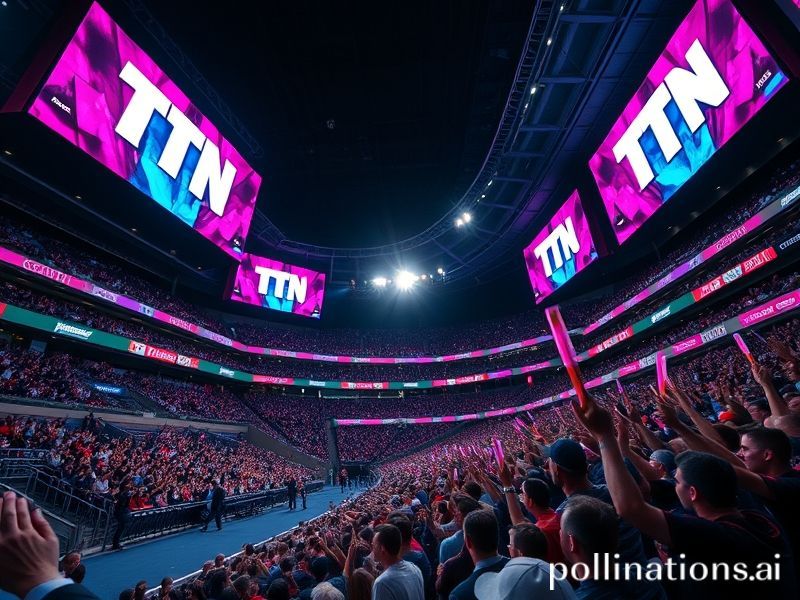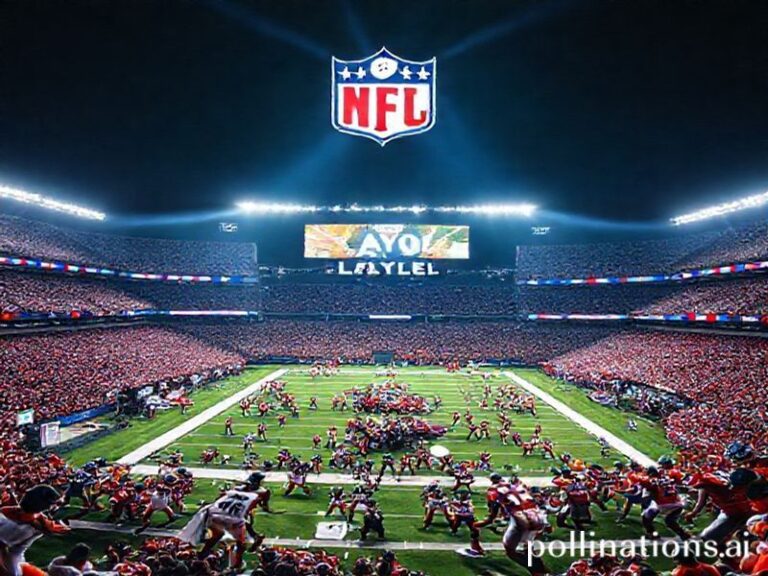TNT Sports: How a Cable Acronym Became the Planet’s Living Room and Your Bookie’s Best Friend
TNT Sports: The Cable Behemoth That Conquered Football, Boxing, and Your Sunday Hangover
By the time the sun rises in Singapore and sets in São Paulo, TNT Sports has already broadcast roughly 73 live events, 214 slow-motion replays, and one very confused cricket commentator wondering why his feed just cut to the NBA Finals. Such is the planetary reach of the channel that started life in 1990 as a sleepy Turner offshoot and now functions as the caffeine drip inside every sports bar on Earth. Its red-and-black logo is less a brand and more a global passport stamp: from Glasgow pubs where Old Firm matches decide theological disputes, to Manila betting shops where a single Champions League goal can refinance a tuk-tuk fleet.
Of course, the name itself is a masterclass in corporate recursion. “TNT” once stood for Turner Network Television, back when Ted Turner still wore safari jackets and thought the Cold War was a ratings stunt. Today it stands for whatever Warner Bros. Discovery’s quarterly earnings call needs it to stand for—Tuesday Night Tackles, Thursday Night Tennis, or, in a pinch, Terrestrial Negotiations with Telcos. The acronym has become a suitcase word: pack it full of meaning, wheel it through customs, hope no one opens it.
The channel’s global strategy is elegantly predatory. In Latin America it wraps the Champions League in Spanish so silky that even the goalkeepers sound seductive. In Europe it buys Bundesliga rights and then politely pretends Germany invented football, a claim the English only pretend to find outrageous. Meanwhile, in the United States, TNT Sports has elbowed its way into the NBA, NHL, and that great American pastime: arguing about whether a 30-second ad break constitutes a “natural pause in play.”
But the real genius lies in the omnichannel hydra. One moment you’re watching Luka Dončić thread a pass on TNT; the next you’re doom-scrolling Bleacher Report clips auto-played by an algorithm that knows your blood type; finally you land on Max, where a documentary solemnly explains why the 1998 Chicago Bulls were actually a metaphor for neoliberalism. The content loop is tighter than a FIFA executive’s alibi.
This vertical integration has geopolitical side effects. When TNT lost Serie A rights to CBS last year, Italian Twitter briefly trended #AddioTNT, a digital funeral featuring crying emojis and pirated streams. The Philippine Basketball Association discovered that its new TNT deal came with an on-screen “Win Probability” graphic that looked suspiciously like gambling software; the league denied everything, then quietly moved tip-off times to 3 a.m. EST to catch the Vegas crowd. Even the polite Canadians felt tremors: Rogers Communications executives reportedly drank Labatt’s Blue in boardrooms while plotting how to pry NHL rights away from Bell’s TSN, TNT’s northern frenemy.
All of which underscores the existential paradox: we now live in a world where a corporate acronym decides which rituals unite strangers across continents, yet the same corporation can’t decide whether its flagship studio show needs four pundits or five. The channel’s latest rebrand—sleeker font, moodier lighting, theme music that sounds like Hans Zimmer stubbed his toe—was hyped as “the future of fandom.” Fans responded by posting memes of a stick of dynamite labeled “subscription fees,” proving that satire travels faster than fiber optic.
And so, as another weekend arrives with the inevitability of a VAR offside check, TNT Sports will beam its signals to 200 territories, 47 languages, and one bewildered goat herder in rural Albania who stumbled upon the Champions League final while looking for weather. Somewhere in Atlanta, an executive will toast the quarterly numbers; somewhere in Lagos, a bar owner will unplug the illegal stream just long enough for the generator to catch its breath. The beautiful game, after all, is only beautiful when someone pays the electric bill.
In the end, TNT Sports is neither hero nor villain. It is simply the latest landlord of humanity’s oldest addiction: watching other people run around for money while we sit still, drinking. And until the sun explodes or the Wi-Fi finally buckles under the weight of our collective despair, that red-and-black logo will keep flickering, promising drama, glory, and—if you upgrade to the 4K package—a slightly clearer view of the apocalypse.







